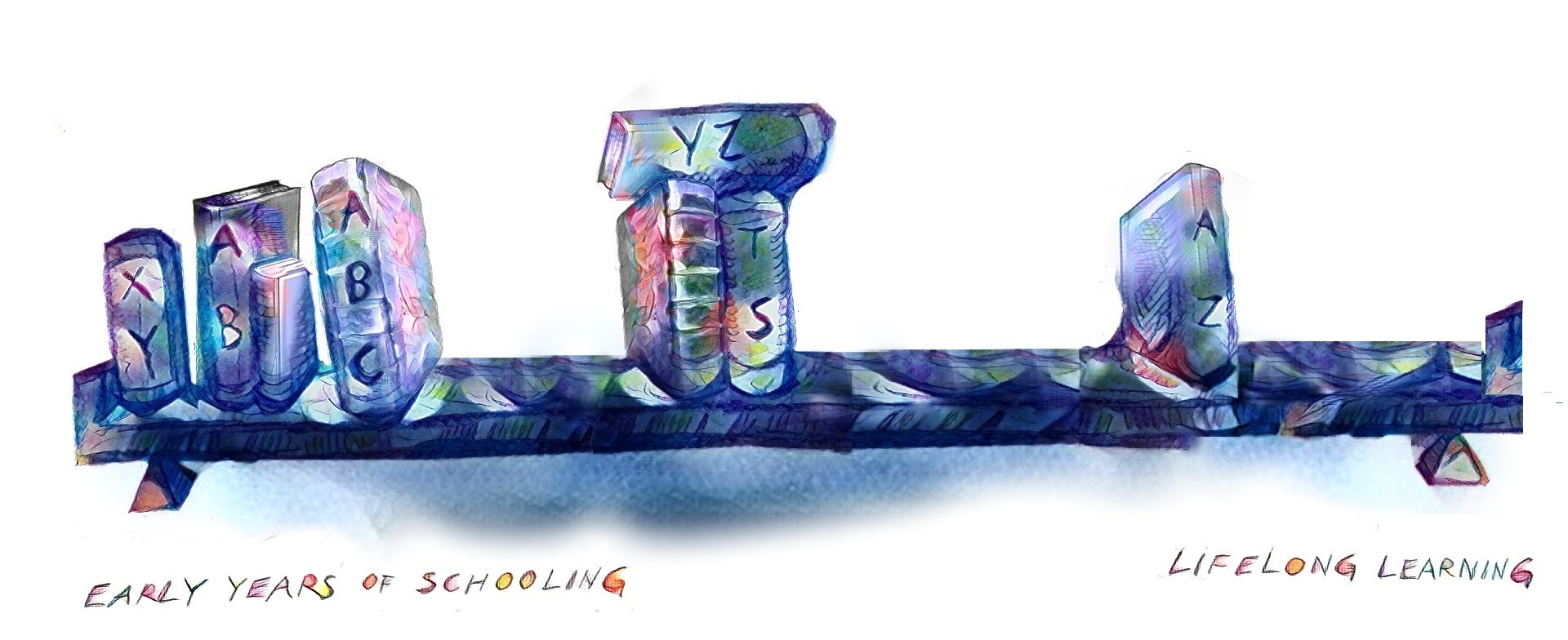When in life is learning most important?

Despite the growing importance and emphasis placed on lifelong learning, UNESCO noted particular focus in the education literature on the early years of schooling. While referring to lifelong learning as a necessity to cope with changes in society and economy, traditional and compulsory schooling was framed by most articles as the foundation or even precondition allowing students to navigate an overwhelming amount of information and providing digital literacy, thus receiving overall more attention in the literature.
Furthermore, lifelong learning - which in fact includes the early years of schooling - was often used as a shorthand to adult learning, where missing skills for the job market could be attained, mostly in an individualistic manner. On the other hand, it’s the spirit of personal development in a shared classroom which many authors relate to when speaking about the early years of schooling.
Excerpts from the literature
“In these times, we can no longer teach people for a lifetime. Education needs to provide people with a reliable compass and the navigation tools to find their own way through an increasingly complex and volatile world.”
- This quote is extracted from a report titled “Educating Learners for Their Future, Not Our Past” written by Schleicher and published in 2018. The paper presents the main conclusion OECD countries working on a new framework for curriculum design, referred to as “Education 2030”, have drawn.
“Modular online education will break down boundaries and change the delivery of education. Student mobility patterns will change, and innovative higher education institutions will see a new global reach. This unbundled approach will also foster lifelong learning habits, keeping our workforce nimble and eager to learn new skills on the job.”
- This quote is extracted from a report titled “Envisioning Pathways to 2030: Megatrends shaping the future of global higher education” published in 2018. The authors articulate their vision for the future of global higher education by synthesising various external reports and data with the perspectives of higher education leaders from around the world. Anant Agarwal, founder and CEO of edX is quoted above.
“Halverson (2010) argue that, with the advent and increasing impact of technologies, a new era of education - the “lifelong learning era” - is beginning, which differs substantially from the current “schooling era” and to a certain extent reflects a return to the pre-industrial “apprenticeship era”. In the “lifelong learning era”, learning takes place across a number of different “venues” and involves mixed-age groups in different constellations.”
- This quote is extracted from a journal article titled “The Future of Learning 2025: Developing a vision for change” written by Redecker, Punle and published in 2013. This paper presents key findings from a foresight study on the "Future of Learning", which employed a series of structured stakeholder consultations, in different formats, involving experts, policy makers and teachers, to envisage how and what European citizens will learn in 2020-2030.
“Learning will become more active and constructive, with an emphasis on learning by doing, and on locational and authentic learning. Learning will take place in social interaction with other learners, teachers and third parties. It will be connected to real life, nature, work, and life in the local and global community”
- This quote is extracted from a report titled “The Future of Learning: European Teachers’ Visions” (a foresight consultation at the 2010 eTwinning Conference, Seville) written by Ala-Mutka, Redecker, Punie, Ferrari, Cachia, Centeno and published in 2010.The overall objective of the research is to contribute to the development of imaginative visions and scenarios of the future of learning in order to support priority setting for education, training and skilling policies, by consulting a range and variety of different experts.